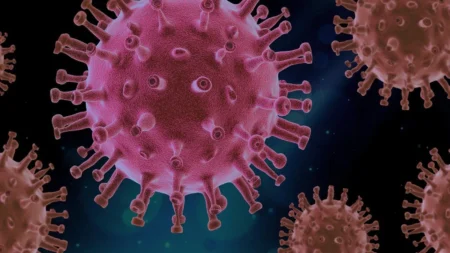Period pain can be exhausting and overwhelming for some. The most common conversation among women could be how painful those days are and how they overcome throbbing pain.
However, how much pain one can endure? Is it normal to have painful periods? If yes, then how much?
Discomfort during periods is not uncommon. Most women face lower pelvic pain along with other symptoms such as nausea, dizziness and headache.
Though most women fail to comprehend the average level of pain, they should expect and what could be a sign of bad menstrual cramps.
Cause of Painful Periods
Period pain occurs when the walls of the womb contract. Contractions during periods are pretty regular.
Sometimes, the contractions are so mild that a woman cannot even feel them. However, during periods the walls contract intensely to allow the inner lining of the womb to shed.
While contracting, the blood vessels lining your womb compress, which temporarily cuts off the blood supply oxygen to your womb.
When a woman’s body releases these pain-triggering chemicals, it also produces another chemical known as prostaglandins that amplify the pain.
Nevertheless, studies about why periods are painful for some women than other is not clear.
Though, it is assumed that some women have increased levels of prostaglandins within the body. This variation is likely to be anticipated to induce pain in some women.
What Are The Signs of Abnormal Period Pain?
It is crucial to comprehend the pain and stop suffering. Severe period pain should be not typical, primarily when no medications work.
There could be many underlying reasons that might impact fertility in the future. Here are some of the red flags for abnormal pain
When Painkillers Do Not Work
Few women prefer over the counter medications such as ibuprofen to comfort the pain. These painkillers are likely to ease the pain within an hour.
However, if these medicines do not help you, then the pain is not normal. Consult a gynaecologist for such a situation.
When Pain Interrupts Your Daily Work
Calling the day off while menstruating is pretty apparent today. Most women take leaves from work and are unable to do simple daily chores.
Though it might not happen every month, repetitive painful menstruation, which does not allow you to work or perform a simple task, is a red flag for something severe.
When The Pain Lasts Too Long
A period of discomfort for two to three days in starting is considered normal. However, enduring pain throughout the bleeding is unusual. Menstrual pain should not last till the last day of the period.
When You Have Added Symptoms Than Normal
Apart from abdominal pain, there could be other symptoms that one might go through, such as heavy bleeding, cramps along with diarrhoea, irregular cycles, pain during intercourse, and random pelvic pain beside your period.
What Causes Abnormal Pain?
Endometriosis
Endometriosis is a chronic condition where cells resembling the uterus grow outside of it. Simply put, it is a noncancerous condition in which the cells lining the womb start growing in other places such as ovaries and fallopian tubes.
Pelvic pain is the most common symptom. Others such as gastrointestinal pain, painful bowel movements, periods longer than seven days, pain during intercourse, and heavy periods are endometriosis symptoms.
Fibroids
Fibroids are a noncancerous cell that grows inside or outside of the womb. Fibroids can vary in size from small as seed to a large mass.
Fibroids can make your uterus look enlarged and are often asymptomatic when one or two in number.
Lower back pain, constipation, frequent urination, leg pain are some of the common symptoms.
Adenomyosis
Adenomyosis is an asymptomatic phenomenon of uterus wall thickening. Generally, it happens when the endometrial tissue that lines the uterus grows into the uterus muscles.
The tissue continues to grow throughout the cycle. This leads to an enlarged uterus. However, severe menstrual cramps that get increasingly worse, heavy or prolonged menstrual bleeding are few symptoms.
PCOS
PCOS is a common hormonal disorder prevailing among women generally caused by a higher hormone level known as androgens.
Irregular period is one of the common symptoms, including weight gain, acne, hair loss, dark patches on the skin, especially near the neck and heavy periods.
How Can You Soothe The Pain?
Consult a Gynaecologist
Counsel a gynaecologist when you notice symptoms, as mentioned above. Describe your symptoms and menstrual cycle thoroughly.
The doctor may refer pelvic exams under certain conditions, which will help to diagnose the underlying cause.
Painkillers
Painkillers are straightway easiest option to opt for. Kindly note over the counter medications (painkillers) can be fatal if not taken in the required dosage.
Do not overdose on painkillers. Consult a general physician or gynaecologist before repeating the dose in a short span.
Birth Control Method
Birth control methods containing estrogen and progestin, such as the pill, the patch, and the vaginal ring, can treat painful periods.
Birth control methods that contain progestin only, such as the birth control implant and the injection, also may alleviate period pain.
Supplements
Food rich in magnesium help ease period pain, according to a study. Along with this, vitamin B1, B6, fenugreek, ginger, valerian, zinc sulphate and Omega3 are other add ons.
These might not relieve pain instantly. However, one should consume these supplements every day or as directed by the physician. With regular consumption, it can be effective.
Exercise
Though exercise would be the last option during intense pain, a walk can alleviate pain in some individuals. Besides periods, routine exercise, including pelvic muscle stretches, is helpful.
Other
Taking a warm shower and heating pads are other options to relieve pain.
Though periods are an integral part of a woman, one should not stress and suffer in pain. At present many women suffer in silence, assuming the throbbing pain as usual.
The right approach can control abnormal menstrual cramps. Emphasising enough, do consult a doctor whenever you feel something unusual with your period.
And most importantly, a woman’s body is beautiful irrespective of endometriosis, PCOS and dreadful periods. Let not acne and extra weight shed your confidence.











